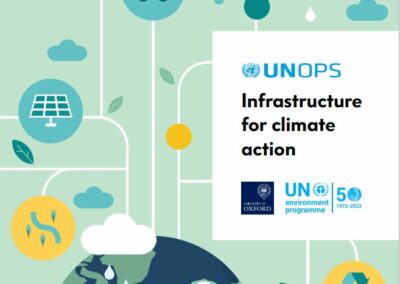Introduction
As part of its work on the National Infrastructure Assessment (NIA) the National Infrastructure Commission (NIC) has been developing scenarios to help understand how the UK’s future infrastructure requirements could change in response to different scenarios or drivers of future change. These scenarios are based on available empirical evidence about past trends, and on quantitative and qualitative forecasts of changes in the economy, population and demography, climate, and technology. Quantitative modelling of ‘baseline’ outcomes in these scenarios, and of packages of policy proposals in the most relevant scenarios, will allow an assessment of the robustness of policy options to future uncertainty.
The scenarios are assessed using the national infrastructure system model (NISMOD), which was developed by the UK Infrastructure Transitions Research Consortium (ITRC), as well as models used by Government departments for the water, waste, transport, and energy sectors.
The results from the scenario analyses are intended to provide evidence on the potential challenges for each of the infrastructure sectors (energy, transport, water and waste) through identifying the likely scale of future infrastructure demands and to support the development of infrastructure recommendations that are robust to future uncertainty.
In the case of water supply, the principal sources of future change in the UK are anticipated to be socio-economic growth, climate change, and increasing environmental restrictions. Climate change is projected to alter the distribution of rainfall and evaporation (Prudhomme et al., 2012b), which will alter the available quantities of water for public supply (Prudhomme et al., 2013, Arnell, 2004, Hannaford and Buys, 2012). For instance, the Department for Environment, Food and Rural Affairs (Defra), in their UK Climate Change Risk Assessment anticipates a decline of 10% to 45% in deployable output of water by 2050 under a medium emissions scenario (Defra, 2012).
The impact of climate change on environmental water quantity in Great Britain has been studied extensively (Arnell et al., 2015). Recent work by Prudhomme et al. (2013), resulting in the Future Flows Hydrology dataset, produced 11 scenarios for river time series from 1951 to 2098 for 282 sites across the UK. Future Flows Hydrology (FFH) has since become an accepted methodology for climate change impact assessments conducted by water companies (Environment Agency et al., 2012). As with earlier projections of climate change, the anticipated spread of future hydrological conditions projected by the FFH scenarios is broad (Prudhomme et al., 2013) and attaching probability to each scenario is not straightforward (Rougier, 2007, Brown and Wilby, 2012).
As part of the ITRC’s analysis of the UK’s future infrastructure requirements a process was developed for applying the 11 Future Flow Hydrology (FFH) scenarios to the NISMOD water model (also known as GBWIM) (Hall et al., 2016). This methodology is described below along with the extension of this same methodology to the development of an additional 22 scenarios based on the new low and high emissions Future Flow scenarios produced by HR Wallingford.


